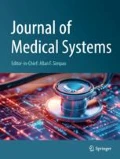Abstract
At the University of Miyazaki Hospital (UMH), we have accumulated and semantically structured a vast amount of medical information since the activation of the electronic health record system approximately 10 years ago. With this medical information, we have decided to develop an alert system for aiding in medical treatment. The purpose of this investigation is to not only to integrate an alert framework into the electronic heath record system, but also to formulate a modeling method of this knowledge. A trial alert framework was developed for the staff in various occupational categories at the UMH. Based on findings of subsequent interviews, a more detailed and upgraded alert framework was constructed, resulting in the final model. Based on our current findings, an alert framework was developed with four major items. Based on the analysis of the medical practices from the trial model, it has been concluded that there are four major risk patterns that trigger the alert. Furthermore, the current alert framework contains detailed definitions which are easily substituted into the database, leading to easy implementation of the electronic health records.
Similar content being viewed by others
References
Abraham, C., Nishihara, E., and Akiyama, M., Transforming healthcare with information technology in Japan: A review of policy, people, and progress. Int. J. Med. Inform. 80(3):157–270, 2011.
Ludwick, D. A., and Doucette, J., Adopting electronic medical records in primary care: Lessons learned from health information systems implementation experience in seven countries. Int. J. Med. Inform. 78(1):22–31, 2009.
Blumenthal, D., and Tavenner, M., The “meaning use” regulation for electronic records. N. Engl. J. Med. 363:501–504, 2010.
Yamazaki, T., Suzuki, M., Araki, K., and Kai, Y., Knowledge management of health-care team using clinical-pathway–case study in hospital of Miyazaki University. 2012 Applied human factors and ergonomics conference proceedings, pp 8222–8231, 2012.
Clancey, W. J., The epistemology of rule-based expert system – a framework for explanation. Artif. Intell. 20:215–251, 1983.
Savage, B. M., and Edmond, O. P., The expert surgical assistant. An intelligent environment with multimodal input. Stud. Health Technol. Inform. 29:590–607, 1996.
Shortliffe, E. H., and Davis, R., Computer-based consultations in clinical therapeutics: Explanation and rule acquisition capabilities of the MYCIN. Comput. Biomed. Res. 8:303–320, 1975.
Buchanan, B. G., and Shortliffe, E. H., Rule-Based Expert Systems: MYCIN Experiments of the Staford Heuristic Programing Project. USA: Addison-Wesley, 1984.
Suwa, M., Carlsle Scott, A., and Shortliffe, E. H., An approach to verifying completeness and consistency in a rule-based expert system. AI Mag. 3:16–21, 1982.
Duda, R. O., and Shortliffe, E. H., Expert systems research. Science 220:261–268, 1983.
Liao, S.-H., Expert systems methodologies and applications-a decade review from 1995 to 2005. Expert Syst. Appl. 28:93–103, 2005.
Partra, P. S. K., and Sahu, D. P., An Expart system for diagnosis of human diseases. J. Comput. Appl. 1:71–73, 2010.
Arel, I., Rose, D. C., and Karnowski, T. P., Deep machine learning – a new frontier in artificial intelligence research. IEEE Comput. Intell. Mag. 5:13–18, 2010.
Stone, P., and Veloso, M., Multiagent systems: A survey from a machine learning perspective. Auton. Robot. 8:345–383, 2000.
Yan Xu, Tao Mo, Qiwei Feng, Deep learning of feature representation with multiple instance learning for medical image analysis, 2014, IEEE International Conference on Acoustics, Speech and Signal Processing: 1626–1630, 2014.
Dang, J., Hedayati, A., and Hampel, K., An ontology knowledge framework for adaptive medical workflow. J. Biomed. Inform. 41:829–836, 2008.
Aarts, J., Ash, J., and Berg, M., Extending the understanding of computerized physician order entry: Implications for professional collaboration, workflow and quality of care. Int. J. Med. Inform. 76:S4–S13, 2007.
Author information
Authors and Affiliations
Corresponding author
Ethics declarations
Conflict of interest
This study was not funded. Author Takuya Sakata, Author Kenji Araki, Author Tomoyoshi Yamazaki, Author Koichi Kawano, Author Minoru Maeda, Author Muneo Kushima, Author Sanae Araki declare that they have no conflict of interest.
Ethical approval
All procedures performed in studies involving human participants were in accordance with the ethical standards of the institutional and/or national research committee and with the 1964 Helsinki declaration and its later amendments or comparable ethical standards. This article does not contain any studies with animals performed by any of the authors.
Informed consent
Informed consent was obtained from all individual participants included in the study.
Additional information
This article is part of the Topical Collection on Systems-Level Quality Improvement
Rights and permissions
About this article
Cite this article
Sakata, T., Araki, K., Yamazaki, T. et al. Development of an “Alert Framework” Based on the Practices in the Medical Front. J Med Syst 42, 114 (2018). https://doi.org/10.1007/s10916-018-0967-9
Received:
Accepted:
Published:
DOI: https://doi.org/10.1007/s10916-018-0967-9




